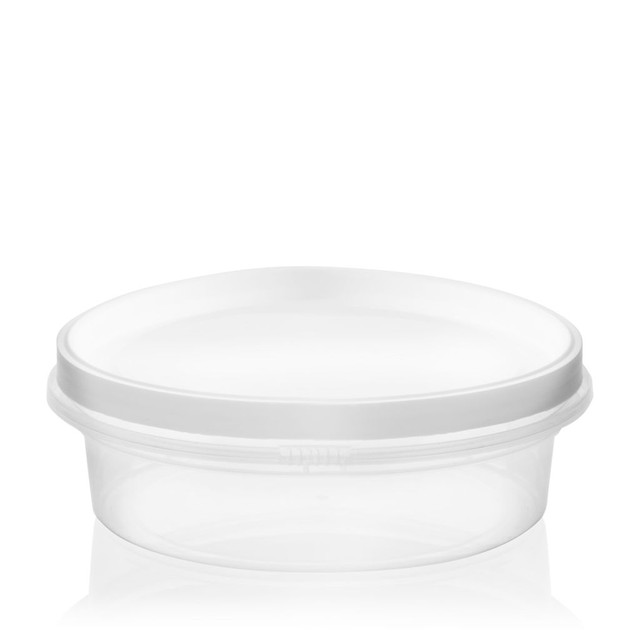A Comprehensive Overview to the Various Kinds of Mass Plastic Containers Available Today
Bulk plastic containers play an important role in various sectors, using remedies for storage and transportation. Their diverse types accommodate different demands, from inflexible alternatives for strong products to flexible containers accommodating various forms. Each type presents distinctive advantages, making it vital to recognize their functions and applications. As sectors develop, so do the needs for effective container solutions. What variables should one take into consideration when choosing the right mass container?
Introduction of Bulk Plastic Containers

Kinds Of Mass Plastic Containers
Bulk plastic containers can be found in numerous types, each matched to certain applications. Stiff bulk containers, versatile bulk containers, and intermediate mass containers stand for the main groups, each offering unique benefits. Comprehending these types is important for selecting the appropriate container for transferring and keeping materials.

Inflexible Bulk Containers
Stiff mass containers are critical for efficient storage space and transport of various materials throughout industries. These containers are typically built from long lasting plastics, permitting them to stand up to extreme handling and ecological conditions. They can be found in various sizes and shapes, including containers, drums, and totes, making them ideal for saving whatever from granular substances to fluids. Stiff containers typically feature reinforced walls and safe and secure lids, making sure the components remain safeguarded throughout transit. Their stackable layout maximizes storage area, making them excellent for stockrooms and producing centers. In addition, several rigid bulk containers are recyclable and recyclable, adding to sustainability initiatives. On the whole, their toughness and versatility make stiff mass containers an essential part in supply chain operations.
Adaptable Bulk Containers
Versatile mass containers, usually described as adaptable intermediate bulk containers (FIBCs), function as a versatile remedy for saving a range and delivering of dry products. These containers are commonly made from woven polypropylene and are created to be lightweight yet solid, enabling efficient handling and stacking. Their versatility allows them to suit numerous shapes and dimensions, making them ideal for items varying from grains to chemicals. FIBCs can be furnished with functions such as spouts for simple filling and discharge, along with safety coatings for improved resilience. Furthermore, they are reusable and recyclable, adding to sustainable techniques in markets like agriculture, food processing, and construction. On the whole, versatile bulk containers use a cost-effective and effective alternative for bulk product administration.
Intermediate Bulk Containers
Intermediate bulk containers (IBCs) are essential for the effective transport and storage of liquids and granular products throughout different markets. These containers commonly have an ability varying from 275 to 330 gallons and are developed for easy piling and handling. Made from sturdy materials like high-density polyethylene or steel, IBCs supply outstanding defense versus contamination and environmental variables. Their layout consists of functions such as a built-in pallet for forklift accessibility and a removable top for very easy filling and cleaning. IBCs are widely utilized in chemical, food, and pharmaceutical industries, making sure compliance with security laws. Their adaptability and reusability make them a cost-efficient remedy for mass storage and transportation, contributing to supply chain efficiency and sustainability.
Attributes and Benefits of Mass Plastic Containers
Mass plastic containers are necessary tools in different industries, offering a mix of resilience and functionality. These containers are built from top notch materials, making them immune to impacts, chemicals, and environmental variables. This effectiveness guarantees item safety and security during storage and transportation.
Furthermore, mass plastic containers are lightweight, helping with ease of managing and minimizing delivery prices. Their stackable style makes best use of storage space efficiency, permitting for optimized storage facility space. Numerous versions feature safe and secure lids or closures, giving a closed seal that preserves materials and avoids contamination.
In addition, bulk plastic containers are often multiple-use and recyclable, contributing to sustainable techniques. Their convenience enables a large range of applications, from food storage to industrial use, enhancing their value across industries. Services profit from the long life-span and reduced upkeep demands of these containers, making them an affordable service for both short-term and long-lasting demands.
Industries That Utilize Bulk Plastic Containers
Various markets gain from using mass plastic containers, each leveraging their unique residential or commercial properties for certain applications. The food and drink market counts on these containers for risk-free storage space and transportation of products, while the you can look here chemical manufacturing sector utilizes them for dealing with unsafe products. Furthermore, the pharmaceutical circulation requires emphasize the significance of longevity and cleanliness in packaging solutions.
Food and Beverage Industry
As the demand for safe and efficient storage options continues to increase, the food and beverage market increasingly relies upon bulk plastic containers for their operational needs. These containers provide durable, lightweight, and versatile options for saving components, finished items, and waste products. Made from food-grade materials, they assure conformity with health and wellness criteria. Different designs, such as stackable containers and carry boxes, optimize room during transportation and storage space, improving logistical effectiveness. In addition, the openness of some mass containers permits for very easy supply monitoring, lowering the threat of perishing. With the sector's concentrate on sustainability, lots of makers are now providing recyclable and recyclable alternatives, lining up with green methods while meeting the high needs of food security and health.
Chemical Manufacturing Field
The chemical manufacturing market depends greatly on bulk plastic containers for the reliable and risk-free storage space of raw products, intermediates, and finished items. These containers are created to endure different chemicals, guaranteeing that harmful materials do not leak or weaken the container itself. Typical types consist of high-density polyethylene (HDPE) and polypropylene containers, which supply exceptional chemical resistance and sturdiness. Their light-weight nature and stackable style help with transportation and storage, optimizing space in manufacturing facilities. In addition, several bulk plastic containers come with features such as tamper-evident seals and easy-to-read labeling, boosting security and conformity with industry policies. Overall, mass plastic containers are important to the chemical manufacturing procedure, offering dependable options for dealing with varied substances.
Pharmaceutical Circulation Demands
Pharmaceutical distribution counts on bulk plastic containers to meet rigid safety and regulatory demands. These containers are crucial for carrying and keeping a range of pharmaceutical items, consisting of energetic pharmaceutical active ingredients (APIs) and completed drugs. Their layout guarantees defense versus contamination, light, and wetness, keeping the honesty of sensitive materials. Additionally, bulk plastic containers are certified with sector requirements such as Good Manufacturing Practices (GMP) and are often made from products that are FDA-approved. Using these containers improves efficiency in the supply chain, permitting secure, large distribution while reducing waste. Companies in the pharmaceutical field focus on the usage of resilient, leak-proof, and tamper-evident containers to assure you could try these out product safety and top quality throughout the logistics procedure.
Considerations for Choosing the Right Container
When picking the proper bulk plastic container, numerous elements must be carefully considered to ensure optimal performance and security. The nature of the materials to be saved is paramount; compatibility with the container's product can influence stability and security. Bulk Plastic Containers. Furthermore, the container's size and form must straighten with the storage space and transportation needs, guaranteeing efficient room use
Load ability is one more vital factor to consider, as it must accommodate the weight of materials without danger of damage or failing. The style features, such as venting or lids, can impact use and access. Compliance with industry regulations is vital, especially in fields like pharmaceuticals, where security requirements are rigid.
Lastly, the anticipated lifespan and resilience of the container need to be evaluated to confirm it meets the functional needs without regular substitute. By evaluating these elements, one can choose one of the most suitable bulk plastic container for specific applications.
Environmental Impact and Sustainability
As organizations increasingly focus on sustainability, the ecological impact of bulk plastic containers has come under examination. These containers, typically made from materials such as polyethylene or polypropylene, add substantially to plastic waste otherwise taken care of effectively. Their manufacturing entails the intake of nonrenewable fuel sources, which can bring about increased greenhouse gas emissions. Nevertheless, innovations in recycling innovation and the advancement of naturally degradable options are helping to minimize these issues.
In addition, several makers are embracing practices that stress the usage of recycled materials, thereby lowering the need for virgin plastics. The resilience of bulk plastic containers additionally plays a function; they are created to be reused several times, which can reduce their overall ecological footprint when contrasted to single-use choices. Ultimately, the market faces the obstacle of balancing capability with environmental responsibility, making lasting practices crucial for the future of mass plastic containers.
Best Practices for Storage Space and Transportation
Efficient storage space and transportation of mass plastic containers considerably influence both functional efficiency and sustainability. To take full advantage of room, organizations must stack containers safely, assuring stability and stopping damage. Proper labeling is crucial for simple recognition, which enhances access processes. Furthermore, preserving a tidy and orderly storage space location reduces the threat of contamination and enhances safety and security.
For transportation, choosing the ideal car is vital; containers need to be protected to avoid moving throughout transportation. Business should likewise take into consideration using pallets to promote simpler loading and dumping. Regular evaluations of containers for wear and tear can stop pricey replacements.
Temperature control is one more essential element, as severe problems can endanger the integrity of the plastic. Training personnel on ideal practices for handling and transportation assurances compliance and promotes a culture of safety and security. By applying these ideal methods, services can enhance their operational efficiency while adding to environmental sustainability.
Frequently Asked Questions
Exactly how Do I Tidy Bulk Plastic Containers Successfully?
To clean bulk plastic containers properly, one ought to wash them with cozy water, utilize a mild cleaning agent and scrub with a soft brush. Wash thoroughly, after that enable to air dry entirely before storage or reuse.
What Is the Life-span of Bulk Plastic Containers?
The lifespan of bulk plastic containers typically varies from 5 to ten years, depending on the product, usage, and ecological problems. Appropriate upkeep and storage can significantly expand their functionality and sturdiness in time.
Can Mass Plastic Containers Be Personalized?

Do Mass Plastic Containers Have Warranty Options?

Are There Regulations for Using Mass Plastic Containers?
Yes, laws exist for making use of mass plastic containers, mostly concentrated on safety, environmental impact, and product conformity. These guidelines ensure that containers satisfy market requirements and are appropriate for delivering different compounds safely and effectively.
Rigid mass containers, adaptable mass containers, and intermediate bulk containers represent the key groups, each offering one-of-a-kind benefits. Versatile bulk containers, typically referred to as flexible intermediate bulk containers (FIBCs), offer as a functional remedy for saving a selection and moving of dry products. The chemical production field counts greatly on mass plastic containers for the effective and risk-free storage space of raw materials, intermediates, and completed products. plastic bulk containers. These containers are created to hold up against different chemicals, guaranteeing that dangerous products do not leakage or deteriorate the container itself. In addition, bulk plastic containers are compliant with sector criteria such as Great Manufacturing Practices (GMP) and are often made from products that are FDA-approved